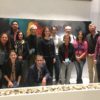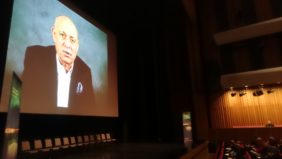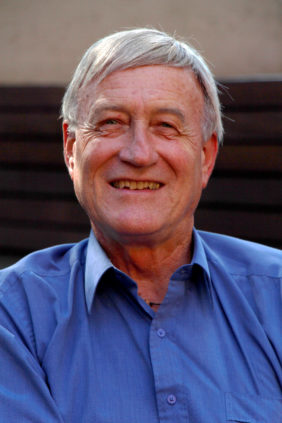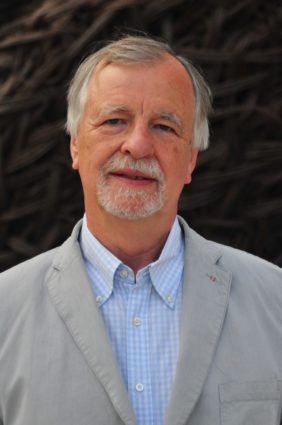Cool Planning: Changing Climate and our Urban Future

Results of the 54th ISOCARP Congress in Bodø, Norway
The final presentation by the Congress Team will be available very soon. Watch the videos of the Opening and Closing Sessions which include the congress team presentations. This website will be constantly updated with further outcomes.
For more information about the Congress, have a look at the following documents or check below:
Keynote Speeches:
 Jeremy Rifkin: Toward a Smart Third Industrial Revolution
Jeremy Rifkin: Toward a Smart Third Industrial Revolution
We are experiencing the beginning of an historic upheaval. The emerging Third Industrial Revolution is giving rise to a digitally-interconnected smart planetary infrastructure and a radical new sharing economy. This is the first new economic system to enter onto the world stage since capitalism and socialism in the 19th century. It is a remarkable historical event that will transform the very nature of commerce, trade, and the way we work and live. This great economic transformation is, in large part, a global response to the growing threat posed by climate change. The shift from the Holocene to the Anthropocene and from the Age of Progress to the Age of Resilience marks a turning point in the human sojourn and an extraordinary opportunity to rethink the way we manage our urban and rural environments in an increasingly unpredictable world.
Watch the recording of the live stream of Jeremy Rifkin’s keynote or read the Interview with him.
 Peter Newman: Cool Planning: Cities and Climate Change
Peter Newman: Cool Planning: Cities and Climate Change
Cities are going to need to adapt and to mitigate to climate change. This will mean preparing for slow, incremental change like Cape Town and Perth with their massively reduced rainfall that began and was predicted decades ago; such cities must make hard decisions before they collapse. Other cities are using the need to cool their atmospheres using biophilic urbanism, led by the remarkable Singapore. But disasters can also be dramatic and terrible from extreme and sudden changes in weather. Both slow and fast adaptation can be turned into a major opportunity if planners can grasp the chance to ‘bounce forward’ not just ‘bounce back’, to build mitigation into every building, precinct and infrastructure. It must be about grasping the need for disruptive innovations that can rapidly decouple fossil fuel use from GDP, a process that is now well underway. Cities are the focus of disruptive changes as they are where growth is happening. We now know how to build the Renewable City through radical reductions in the need for energy, switching to solar/wind/geothermal with batteries, and electrifying everything, especially transport. The Theory of Urban Fabrics will be used to show how different strategies are needed in different parts of the city: the high density walking city, the medium density transit city and the low density automobile city, which are found in every city. The dramatic changes that have begun in mitigation will be illustrated showing the necessary role for planners using some global innovations from my own city Perth.
For full presentation: Cool Planning: Cities and Climate Change
Watch the live stream of Peter Newman’ keynote
(from minute 30 onwards)
 Herbert Girardet: Regenerative Cities – making cities work for people and planet
Herbert Girardet: Regenerative Cities – making cities work for people and planet
The environmental impacts of an urbanising world present an unprecedented challenge to urban planners and decisionmakers. With cities as centres of production and consumption, we need to realise the economic benefits of making them resource efficient and eco-friendly. I argue for creating ‘regenerative cities’ – thinking and acting beyond sustainable development, and finding new approaches for integrating town and country planning. In a world of climate change and resource depletion, cities need to find new ways of developing a ‘give-and-take relationship’ with their local region, including food and renewable energy supplies. I’ll draw closely on the example of South Australia where such initiatives have created the basis for a new, green economy for Adelaide.
For full presentation: Regenerative Cities – making cities work for people and planet
Watch the live stream of Herbert Girardet’s keynote
(from minute 30 onwards)
Track Presentations (click to download)
Track 1 The Global View: Climate Change Impacts, Sustainability and Resilience
Track 2 Spotlight Cities: Planning for Coastal Cities, Remote Towns & High North Cities
Track 3 Climate-Proof Cities: Planning for Weather, Water, Food and Energy
Track 4 Technology and Infrastructure: Clean, Green, Smart and Resilient
Track 5 Social Networks: Citizen Participation, Urban Governance and Cultural Transformation
Track 6 Contemporary Planning Practice and Paradigms
Special Session, Side Events, Session Proposals (click to download)
Special Session Planners for Climate Action – an initiative of UN-Habitat
Special Session ISOCARP and the new Generation of Planners
Special Session ISOCARP UPAT Seminar
Special Session ISOCARP Awards for Excellence Seminar
Session Proposal Planning for diversity
Session Proposal Constructed and contested legitimacy in urban governance
Impressions of the Congress and Bodø
One of our members, Wenjing Luo, shared her travel diary with us, describing her experiences of the Congress, the YPP workshop in Kristiansand, and various side events. Download the PDF and read her story!
[foogallery id=”34303″]
© Amos Brandeis & Federico Aili










